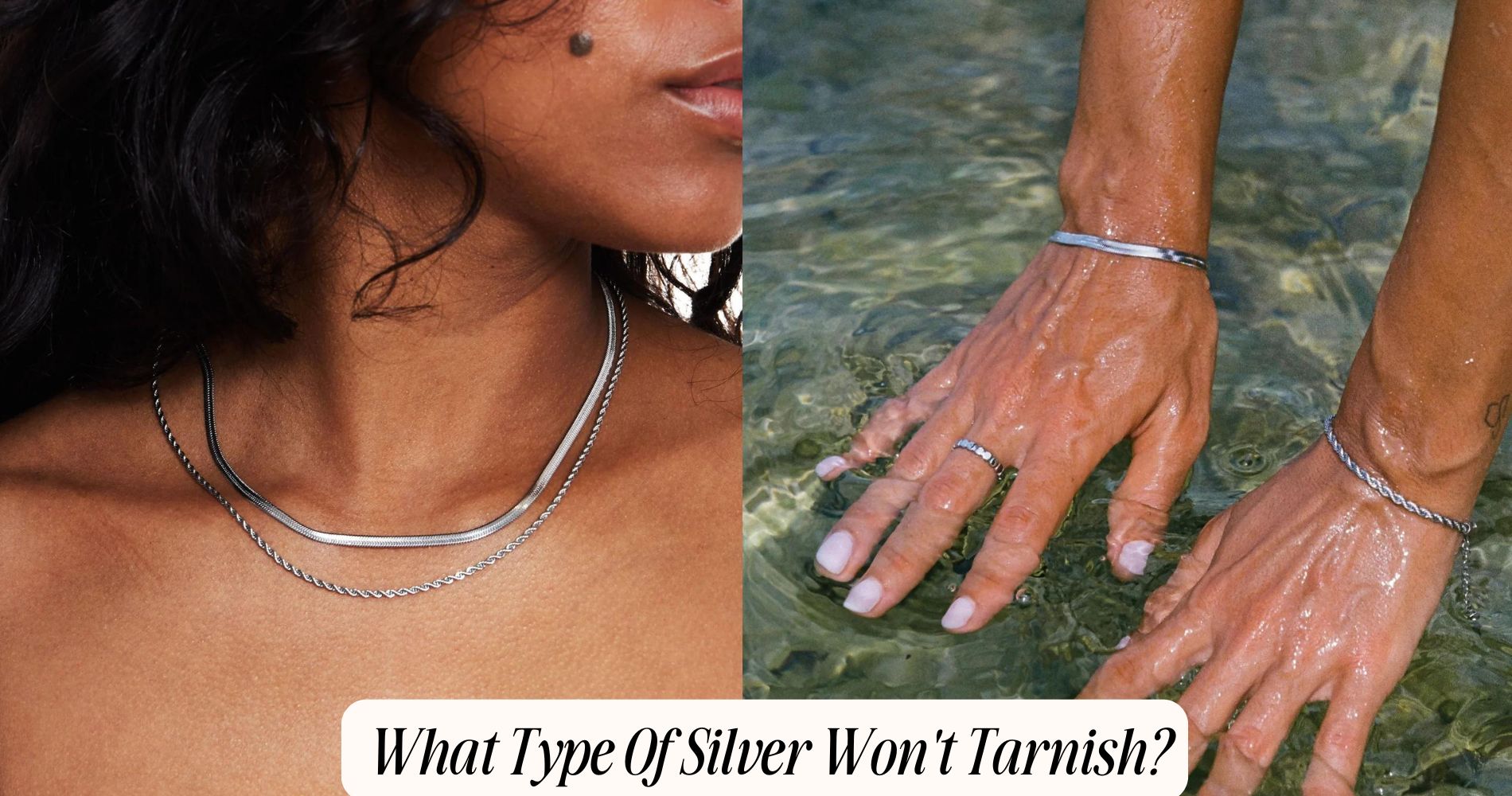
What Type Of Silver Won't Tarnish?
If you're wondering what type of silver won't tarnish, two great options to consider are Argentium silver and rhodium-plated silver. Argentium silver boasts a higher purity and contains germanium, which significantly reduces tarnish while preserving its durability and strength. Rhodium-plated silver, on the other hand, features a thin layer of rhodium over sterling silver, enhancing its resistance to tarnishing. While both types offer excellent protection, proper care and storage are still crucial to maintaining their shine. Interested in learning more about tarnish-resistant silver or exploring beautiful pieces? Check out our Tarnish Free Jewelry Collection.
Understanding Silver Alloys
When you explore silver alloys, it's essential to recognize that not all silver is created equal. The silver purity in an alloy determines its quality and resistance to tarnishing. For instance, sterling silver contains 92.5% pure silver, with the remaining 7.5% typically composed of other metals, often copper. This blend enhances durability but can make it susceptible to tarnishing if not properly maintained.
Understanding the composition of various silver alloys helps you make informed choices. Higher purity levels, such as fine silver (99.9% pure), resist tarnishing better but lack the strength for everyday use. Conversely, lower purity alloys may provide more durability but at the cost of tarnishing more readily.
Silver maintenance plays an important role in preserving the beauty and longevity of your silver items. Regular cleaning and proper storage can greatly reduce tarnish buildup, extending the life of your silver pieces.
Sterling Silver Characteristics
Sterling silver is a popular choice for jewelry and decorative items due to its unique combination of beauty and strength. Defined by a silver purity of 92.5% silver and 7.5% other metals—typically copper—this alloy enhances durability while maintaining an appealing aesthetic.
The higher silver content contributes to its lustrous shine, making it a favored option for artisans and consumers alike.
However, sterling silver is susceptible to tarnishing, a natural reaction with environmental factors like moisture and sulfur. To preserve its appearance, regular jewelry maintenance is essential. You should clean your sterling silver pieces frequently using a soft cloth and appropriate cleaning solutions.
Storing your items in anti-tarnish pouches or jewelry boxes can further shield them from oxidation.
It's also important to be mindful of how you wear sterling silver. Avoid exposing your jewelry to harsh chemicals, such as those found in household cleaners or beauty products.
Argentium Silver Benefits
In recent years, Argentium silver has gained popularity among jewelers and consumers for its outstanding benefits, particularly its remarkable resistance to tarnishing. One of the primary Argentium silver advantages is its unique composition, which includes a higher percentage of pure silver along with germanium. This formula greatly reduces the formation of tarnish compared to traditional sterling silver, allowing you to enjoy your jewelry without frequent cleaning.
Moreover, Argentium silver boasts a bright, white finish that enhances the aesthetic appeal of your pieces. Its durability and strength make it suitable for crafting intricate designs, ensuring longevity in wear.
When it comes to Argentium silver care, maintaining its brilliance is relatively straightforward. Regular gentle cleaning with a soft cloth removes any dirt or oils accumulated during wear, while occasional polishing with a suitable silver cleaner can restore its shine.
Additionally, because it's less prone to tarnish, you won't need to use anti-tarnish storage solutions as often, making it a low-maintenance choice for both everyday wear and special occasions.
Nickel Silver Explained
Nickel silver, often used in various applications, is an alloy made primarily of copper, nickel, and zinc. Its composition typically includes about 10-20% nickel content, which greatly enhances its corrosion resistance and strength.
Historically, nickel silver emerged in the 19th century, primarily as a substitute for sterling silver, providing a cost-effective alternative while maintaining an appealing appearance.
You'll find nickel silver in a range of products, from musical instruments to cutlery and jewelry. Its durability and resistance to tarnishing make it a preferred choice for items exposed to everyday wear.
Unlike pure silver, which can be prone to oxidation, nickel silver's combination of metals allows it to maintain its luster over time, although it can still develop a patina.
When considering nickel silver for your projects, be aware that while it won't tarnish in the same way as traditional silver, it may require occasional polishing to retain its shine.
Rhodium-Plated Options
For those seeking a tarnish-resistant option that combines the elegance of silver with enhanced durability, rhodium-plated jewelry offers an appealing solution.
Rhodium plating involves applying a thin layer of rhodium—a precious metal from the platinum group—over sterling silver. This process not only enhances the jewelry's aesthetic appeal but also greatly boosts its tarnish resistance.
The durability of rhodium plating means that your jewelry can withstand everyday wear while maintaining its shine. Unlike untreated silver, which can develop a dull patina over time, rhodium-plated pieces resist tarnishing due to the non-reactive nature of rhodium.
However, it's important to note that while rhodium plating does provide excellent tarnish resistance, it can wear off over time, particularly with frequent use.
To prolong the life of your rhodium-plated jewelry, it's advisable to store it in a cool, dry place and avoid exposure to harsh chemicals or abrasive materials.
Regularly cleaning it with a soft cloth can also help maintain its luster. By choosing rhodium-plated options, you're investing in both beauty and practicality, ensuring your jewelry remains stunning for years to come.
Frequently Asked Questions
How Can I Clean Tarnished Silver Effectively?
To clean tarnished silver effectively, use non-toxic cleaners like baking soda or vinegar. Employ gentle polishing techniques, such as soft cloths or brushes, ensuring you restore shine without scratching the surface or causing further damage.
Is Pure Silver Immune to Tarnishing?
Pure silver isn't immune to tarnishing. It's the tarnishing chemistry that reacts with sulfur compounds in the air. Silver alloys, often containing copper, tarnish more rapidly due to their increased reactivity compared to pure silver.
Can Silver Tarnish in Humid Environments?
Yes, silver can tarnish in humid environments due to moisture's reaction with sulfides. To enhance tarnish prevention, consider storing silver in dry places or using anti-tarnish cloths to minimize exposure to humidity and air.
What Causes Silver to Tarnish Over Time?
Silver tarnishes due to the oxidation process, where it reacts with sulfur compounds present in the air and moisture. These chemical reactions create silver sulfide, resulting in the dull appearance you notice over time.
Are There Any Ways to Prevent Silver Tarnishing?
To prevent silver tarnishing, you can use preventive measures like anti-tarnish cloths and store items in airtight containers. These storage solutions minimize exposure to air and moisture, greatly slowing down the tarnishing process.
Conclusion
To summarize, if you're looking to avoid tarnishing in silver jewelry, consider Argentium silver due to its superior resistance to oxidation. Sterling silver, while beautiful, will tarnish over time, as will nickel silver, which isn't true silver. Alternatively, rhodium-plated options offer an attractive protective layer but require periodic maintenance. By understanding these materials, you can make informed choices that best suit your needs and lifestyle, ensuring your silver remains brilliant and tarnish-free.











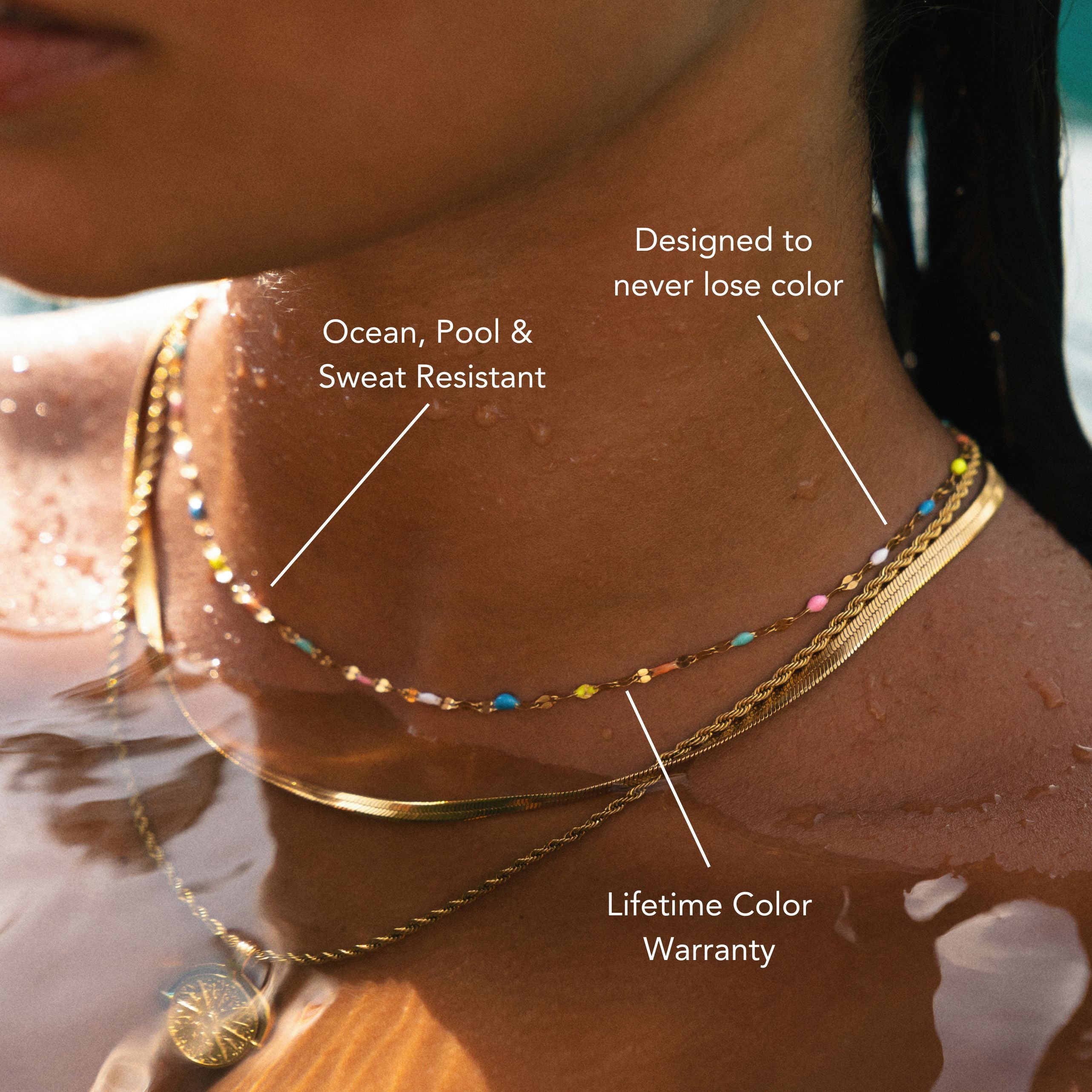
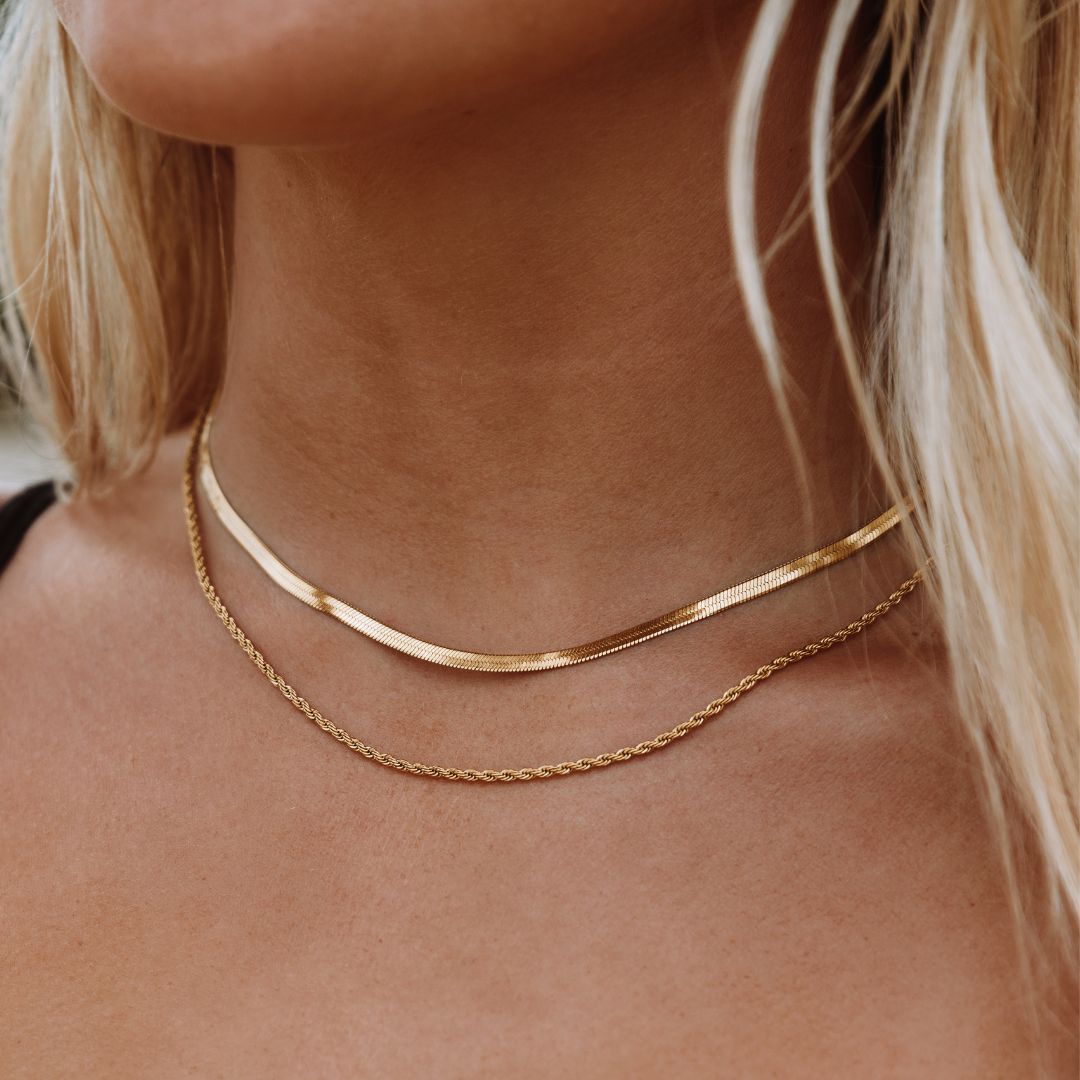



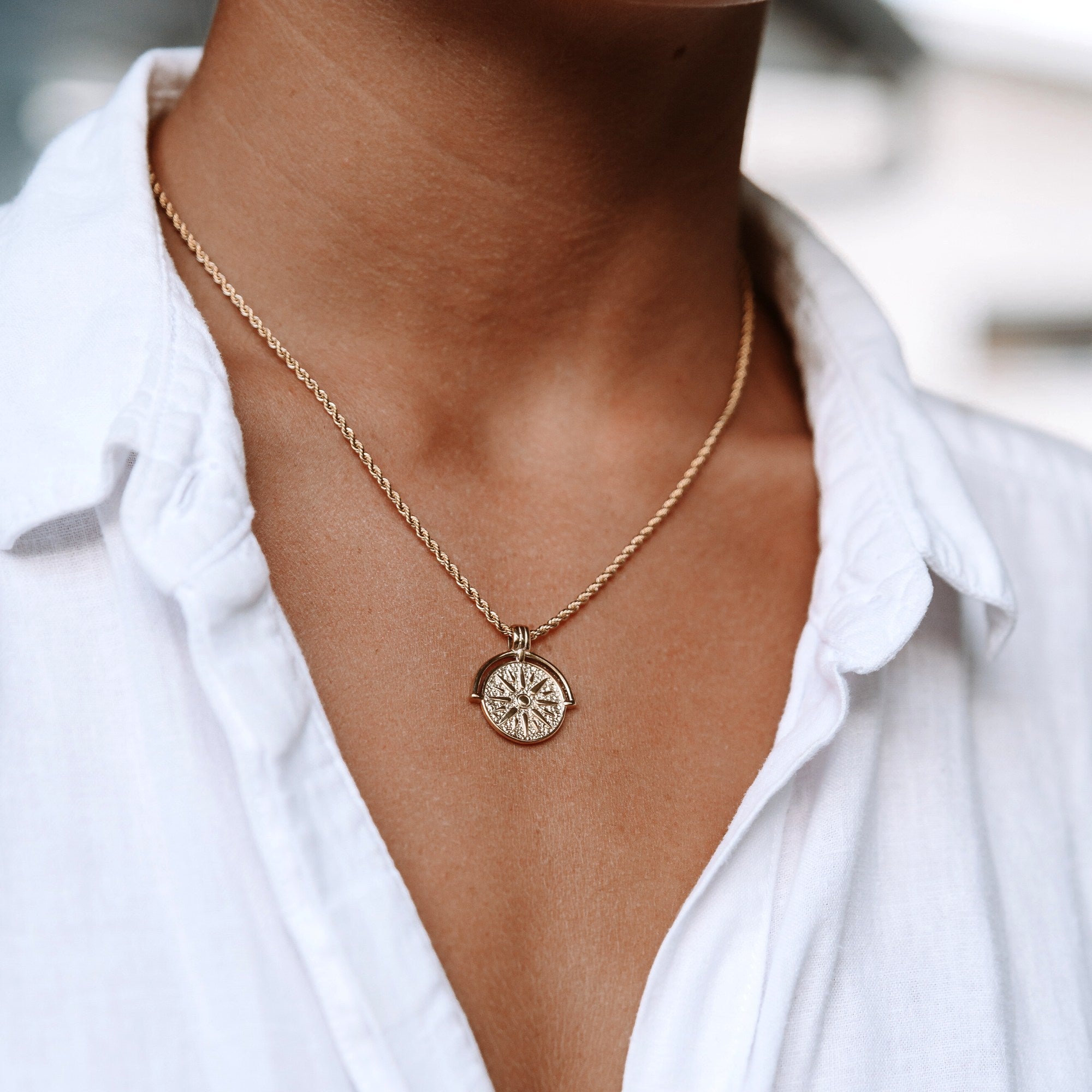

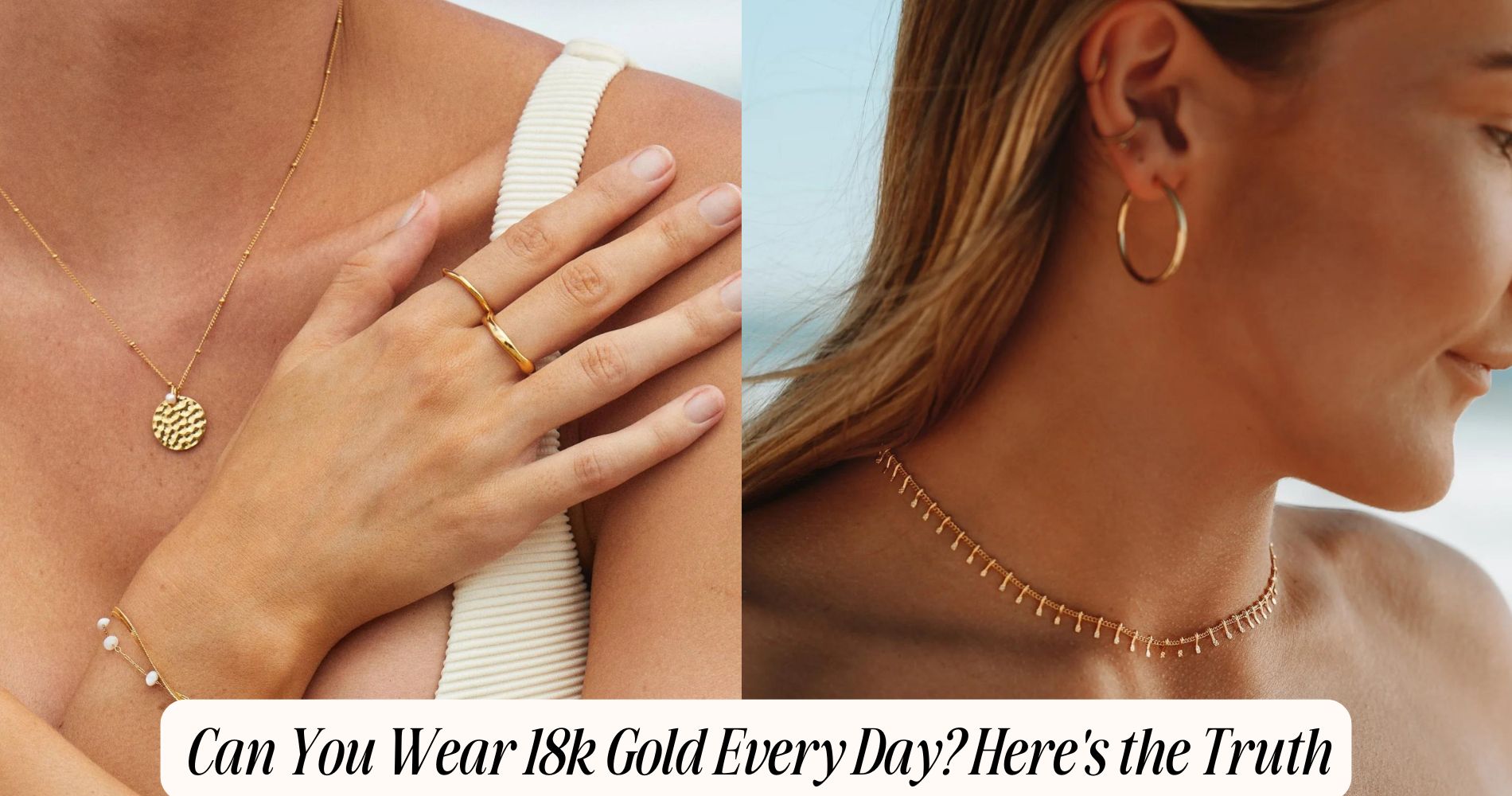





Leave a comment
This site is protected by hCaptcha and the hCaptcha Privacy Policy and Terms of Service apply.